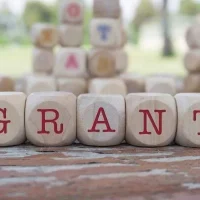In an increasingly interconnected world, the role of international donors in health and nutrition projects has become paramount. These donors, which include governments, foundations, and multilateral organizations, provide essential funding and resources that enable non-governmental organizations (NGOs) to implement impactful programs. The significance of health and nutrition cannot be overstated; they are fundamental to the well-being of individuals and communities, influencing everything from economic productivity to educational attainment.
As such, understanding the landscape of international donors is crucial for NGOs seeking to enhance their initiatives in these areas. International donors not only offer financial support but also bring expertise, networks, and innovative approaches to health and nutrition challenges. Their contributions can help bridge gaps in funding, particularly in low- and middle-income countries where resources are often limited.
By collaborating with these donors, NGOs can leverage their strengths to create sustainable solutions that address pressing health issues, such as malnutrition, maternal and child health, and infectious diseases. This article will explore the vital role of international donors in global health and nutrition, the criteria for evaluating them, a list of top donors in this field, and successful case studies that highlight the impact of their support.
The Role of International Donors in Global Health and Nutrition
Supporting Targeted Interventions
Organizations like the Global Fund to Fight AIDS, Tuberculosis and Malaria mobilize resources to combat diseases and support nutrition programs integral to overall health. By channeling funds into targeted interventions, international donors help NGOs scale their efforts and reach vulnerable populations effectively.
Fostering Innovation and Collaboration
International donors serve as catalysts for innovation in health and nutrition, encouraging the adoption of evidence-based practices and the use of cutting-edge technologies to address complex challenges. For example, the Bill & Melinda Gates Foundation has invested heavily in research and development for new vaccines and nutritional supplements that can significantly improve health outcomes in developing countries.
Creating a Collaborative Ecosystem
By fostering partnerships between NGOs, governments, and private sector entities, international donors create an ecosystem that promotes collaboration and knowledge sharing. This synergy is essential for developing comprehensive strategies that tackle the root causes of health and nutrition issues.
Criteria for Evaluating International Donors for Health and Nutrition Projects
When seeking funding from international donors for health and nutrition projects, NGOs must carefully evaluate potential partners based on several key criteria. First and foremost is alignment with organizational goals. It is crucial for NGOs to identify donors whose missions resonate with their own objectives.
This alignment ensures that both parties are working towards common goals, which can enhance the effectiveness of the partnership. Another important criterion is the donor’s track record in funding similar projects. NGOs should assess the donor’s history of support for health and nutrition initiatives, including the types of projects funded, geographical focus, and outcomes achieved.
A donor with a proven commitment to these areas is more likely to understand the challenges faced by NGOs and provide valuable insights throughout the project lifecycle. Additionally, evaluating the donor’s funding mechanisms—such as grant size, application processes, and reporting requirements—can help NGOs determine whether they can realistically engage with the donor. Furthermore, NGOs should consider the donor’s reputation within the sector.
Engaging with well-respected international donors can enhance an NGO’s credibility and attract additional funding opportunities. Networking with other organizations that have successfully partnered with specific donors can provide valuable insights into their expectations and preferences. Ultimately, a thorough evaluation process will enable NGOs to identify the most suitable international donors for their health and nutrition projects.
Top 10 International Donors for Health and Nutrition Projects: Overview
1. **Bill & Melinda Gates Foundation**: Renowned for its commitment to global health, this foundation invests heavily in initiatives aimed at reducing malnutrition and improving maternal and child health worldwide. 2. **Global Fund to Fight AIDS, Tuberculosis and Malaria**: This organization focuses on combating these three diseases while also addressing related nutritional needs through integrated health programs. 3. **World Health Organization (WHO)**: As a specialized agency of the United Nations, WHO provides technical assistance and funding for various health initiatives, including nutrition programs aimed at improving public health. 4. **United Nations Children’s Fund (UNICEF)**: UNICEF plays a critical role in promoting child nutrition through its various programs that target malnutrition among vulnerable populations. 5. **USAID (United States Agency for International Development)**: USAID funds a wide range of health initiatives globally, with a strong emphasis on nutrition programs that support food security and maternal health. 6. **European Commission**: Through its development cooperation programs, the European Commission supports health and nutrition projects in developing countries, focusing on sustainable development goals. 7. **The Wellcome Trust**: This global charitable foundation funds research and innovation in health, including projects that address nutritional deficiencies and promote healthy diets. 8. **The Rockefeller Foundation**: Known for its focus on sustainable development, this foundation supports initiatives that improve food systems and nutrition security worldwide. 9. **The Global Nutrition Cluster**: A partnership of UN agencies and NGOs that coordinates efforts to address malnutrition in emergencies through funding and technical support. 10. **The World Bank**: The World Bank provides financial resources for health projects globally, with a focus on improving nutrition as part of broader economic development strategies. These international donors represent a diverse array of funding sources that NGOs can tap into for their health and nutrition projects. Each donor has its unique focus areas and funding mechanisms, making it essential for NGOs to tailor their proposals accordingly.
Case Studies of Successful Health and Nutrition Projects Funded by International Donors
One notable case study is the “Scaling Up Nutrition” (SUN) movement supported by various international donors, including the Bill & Melinda Gates Foundation and UNICEF. This initiative aims to reduce malnutrition by promoting multi-sectoral approaches that involve agriculture, education, health care, and social protection. In countries like Ethiopia, SUN has led to significant improvements in child nutrition indicators through community-based interventions that empower local populations to take charge of their nutritional needs.
The collaboration between international donors and local NGOs has been instrumental in creating sustainable change. Another successful project is the “Integrated Child Health and Nutrition Program” funded by USAID in Bangladesh. This program focuses on improving maternal and child health through a comprehensive approach that includes nutrition education, access to healthcare services, and community engagement.
By leveraging local resources and building partnerships with community-based organizations, USAID has helped reduce stunting rates among children under five years old significantly. The success of this initiative underscores the importance of collaboration between international donors and local stakeholders in achieving lasting impact.
the Importance of International Donors in Improving Global Health and Nutrition
In conclusion, international donors play a crucial role in enhancing global health and nutrition outcomes through their financial support, expertise, and collaborative efforts with NGOs. Their contributions are vital for addressing pressing health challenges faced by vulnerable populations around the world. By understanding the landscape of international donors—evaluating their criteria for funding, identifying key players in the field, and learning from successful case studies—NGOs can strategically position themselves to secure necessary resources for impactful projects.
As global challenges continue to evolve, the importance of international donors will only grow. Their ability to mobilize resources quickly in response to crises—such as pandemics or natural disasters—demonstrates their critical role in safeguarding public health. For NGOs dedicated to improving health and nutrition outcomes, building strong relationships with international donors is essential for driving meaningful change in communities worldwide.
Through these partnerships, we can work towards a healthier future where everyone has access to adequate nutrition and healthcare services.





![Call for Applications: “Voices in Motion” Program [Sri Lanka] - fundsforNGOs Call for Applications: “Voices in Motion” Program [Sri Lanka]](https://www2.fundsforngos.org/wp-content/uploads/2023/04/dance-200x200.jpg)



































